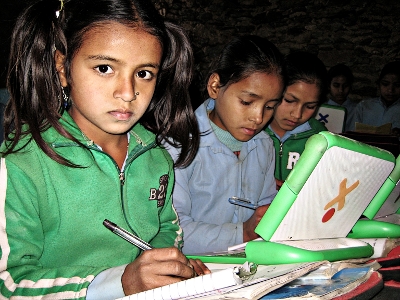While education was viewed as Elite’s reach some fifty years ago in Nepal, it is now considered the most fundamental need. In the last few decades, educational institutions have mushroomed in the nook and corner of Nepal. The educational expenditure accounts to 4.7 percent of the nation’s GDP and the literacy rate of Nepal is 63.9 percent as per indexmundi.com. While these data show the rays of hope in the educational development of Nepal, the motive behind education making people more knowledgeable and skillful is still questionable.
The current education system in the context of Nepal comprises of a three tier education system that ear-marks ten years of school education, four years of college education and two years for a master’s program in college/ University. After masters, students strive for doctoral degree in their respective field.
As I sat down to write this article, I revived my school days. My school days mostly comprised of a routine curriculum that a teacher was compelled to complete before the annual exams. The curriculums were also not revised frequently. Even after 8 years, my brother studies almost the same chapters that I studied. Exams were scarier than The Conjuring. Each day, I would come home loaded with home-works and study was always a burden for me. Like every other student, I also dreamed of having my school caught on fire (stupid though) and having the longest holidays ever. I still thank God for I did not have to stay in a hostel and study for 15 to 18 hours like a parrot during my SLC days and yet, I passed my SLC. Yay!
According to what I have seen, schools in Kathmandu dwell on making its students educated and not knowledgeable. Infrastructure, faculties and management, experience in teaching, pass percentage of students among others, make up advertisement billboards and these are seemingly attracting many students as well. But, do these attractive billboards guarantee the quality education? The core idea behind the quality education system is dwindling as schools and colleges have centered in Kathmandu and they only focus on attractive numbers in certificates. The education is short- term focused and is based on rote learning which is lethal. Also, it does not add value in your growth as an individual and a professional being.
The current world demands knowledgeable and skillful persons and not merely the educated ones. In the age of millennials, you are bound to fierce competitions where your skills define you and not your certificates. Hence, it is never too late to hone your knowledge with passion and skill.
While education means only formal schools and colleges/ universities in Nepal, the concept is slowly changing. The national movement- Teach For Nepal is a sheer example of why education is important and is a response to a growing problem of educational inequity in our country. Also, institutions like Edushala, Karkhana and Glocal After School are working to edify the learner by designing learning experiences and focusing on enhancement of skills.
The deviation from this pre-designed three tier education system will surely take some time. What is important is knowing the difference between educated and being knowledgeable. It is about identifying your skills, polishing and refining it and developing yourself to be a competent being through continuous learning.
Photo Source:Â olenepal.org
By Anusha Kadel







